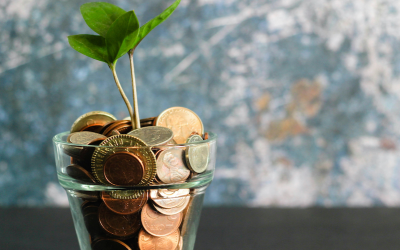MiM Programs Place a Sharper Focus on Business Ethics

Business schools are moving away from the shareholder primacy model and teaching students about stakeholder capitalism
There is a growing consensus that focusing on short-term shareholder value is not only bad for society, but also leads to poor business results. This has forced a rethink of business school teaching, which has historically been shaped by the shareholder primacy model.
The trend has gained significant momentum since the global financial crisis of 2008, which exposed the limits of pursing profit at all costs. More recently, business ethics has been amplified by the Covid-19 crisis that forced companies to consider their impact on society more widely.
Business schools have responded by placing a sharper focus on ethics in their masters in management (MiM) courses. Students on the highly-ranked MiM at London Business School have the opportunity to explore and learn about business ethics and responsible business as part of the academic curriculum and their student experience.
Positive social impact
For example, the Managing and Investing in Responsible Business elective encourages MiM students to consider the positive social impact business can create as well as their own role as business leaders in a world facing ever-greater environmental and social challenges.
The UK school’s Judgment in Decision Making course was designed with Sir Andrew Likierman, a former LBS dean, and covers the ethical considerations involved in making good decisions.
“Student-led clubs, such as our Social Impact Club and Impact Investing Club, also put issues like social impact, responsible business practices and sustainability front and center,” says Jane Charlton, interim executive director of degree programs and student experience at LBS.
Ethics and sustainability are also a core focus for the MiM at HEC Paris business school, which emphasizes long-term rather than short-term value creation. “Ethical business creates financial value, as we observe increased pressures from the different stakeholders: from the regulator, from consumers, who ask for ethical products, and from investors who fear scandals,” says Benedicte Faivre Tavignot, professor of strategy and business policy at HEC Paris.
Tensions between profitability and ethics
But tensions remain between profitability and ethics, she adds. “The control of the whole value chain requires many expenses; reducing radically CO2 emissions means making sometimes huge investments.”
HEC Paris puts on a module called Ethics and Sustainability, which considers the ethical responsibilities of managers and corporations that go beyond economic considerations.
Faivre Tavignot says the Covi-19 pandemic has a raised the question of sharing value more equally in society. “Coronavirus has increased inequalities that were already quite high: inequalities between professions, for example between nurses and those less exposed but enjoying very high revenues; and inequalities within companies, for instance between low skilled employees and top executives.”
Marc Vilanova, director of the Department of Society, Politics and Sustainability at Spain’s ESADE Business School, agrees that the crisis has increased the debate on sustainability issues in general, not only among companies, but among all stakeholders. However, he says it is too early to say whether this is a general trend that will be maintained and even accelerated, or whether it will fade as the pandemic passes.
“Most studies have shown a positive correlation between financial value and responsible practices,” says Vilanova. “A company that generates value for most stakeholders will have a clear competitive advantage. However, the problem here is that we still ask these questions.”
He teaches the Business in Society module in the MSc in International Management at ESADE. “Business ethics, sustainability, and responsibility are at the heart of our program,” Vilanova says. “We have many core and elective courses focused on these topics, because we understand that ethics and sustainability are about sound management, not moral discussions.”
“A well-run company will be more responsible than a badly run one, the same way that a good human being will be a better manager than a bad one,” he adds.
Responsible business practices
Companies know this, and they are demanding that business masters students have a good knowledge of sustainability issues and responsible business practices. Vilanova says companies are taking their responsibility for the impacts they have more seriously.
“Companies seem to go through a learning curve that goes from compliance, to philanthropy, to marketing, to strategy,” he says. “The most advanced companies, and where we seem to be moving toward, think systemically, and understanding that solutions need to be multi-stakeholder.”
Looking ahead, Tavignot at HEC Paris says the future of business ethics integrates more and more the question of environmental and climate justice alongside social impact. “Hence business ethics is becoming much broader than the question of good governance versus corruption. It questions our lifestyle, our production and consumption patterns,” says the executive director of the school’s Society and Organizations Institute.






